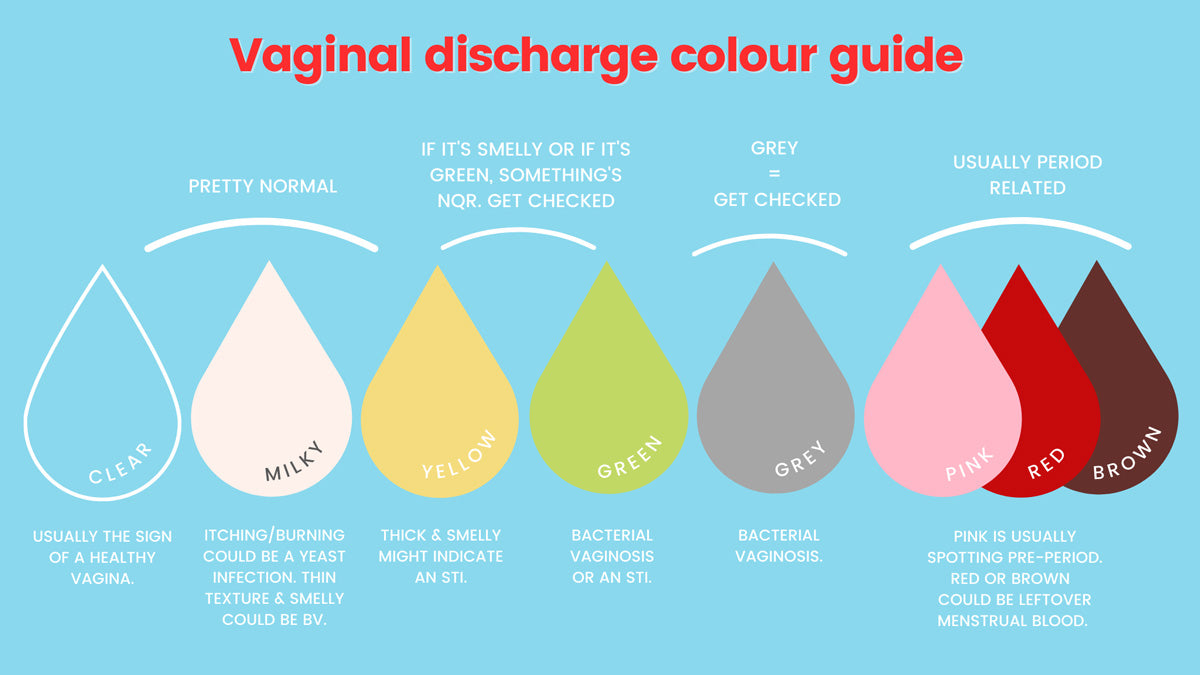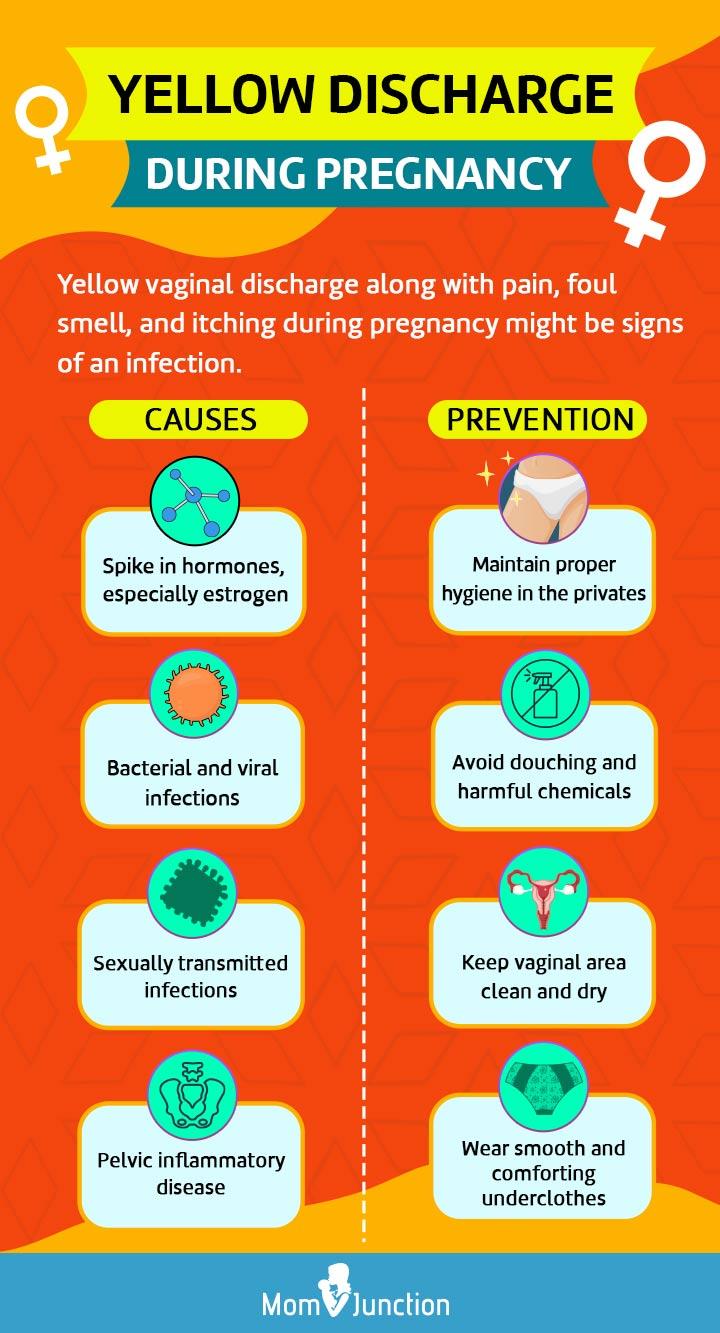Yellowish Discharge After Birth
Yellowish Discharge After Birth - The discharge is typically yellowish or white. The discharge becomes lighter and less noticeable over time. Lochia alba can last for several. If your discharge has a. It consists of blood, mucus, uterine tissue and other materials from your uterus. Lochia looks “bloody” at first, which is why it is sometimes referred to. However, the discharge should not smell foul or fishy. Bloody or yellow discharge after birth may have an odor similar to menstrual blood. But what is not commonly talked about is the four to six weeks of postpartum bleeding and discharge that occurs after birth, otherwise known as lochia. Around two to four days after you've given birth, the lochia may be more watery and pinkish.
Lochia is vaginal discharge after childbirth. Around two to four days after you've given birth, the lochia may be more watery and pinkish. When should i be worried about discharge after giving birth? Bloody or yellow discharge after birth may have an odor similar to menstrual blood. However, the discharge should not smell foul or fishy. It consists of blood, mucus, uterine tissue and other materials from your uterus. The discharge is typically yellowish or white. But what is not commonly talked about is the four to six weeks of postpartum bleeding and discharge that occurs after birth, otherwise known as lochia. (this postpartum bleeding phase is called lochia serosa.) by about 10 days after the birth, you may have only a small amount of white or. If your discharge has a.
It consists of blood, mucus, uterine tissue and other materials from your uterus. If your discharge has a. However, the discharge should not smell foul or fishy. There are three stages of lochia bleeding. Bloody or yellow discharge after birth may have an odor similar to menstrual blood. The discharge becomes lighter and less noticeable over time. Lochia is vaginal discharge after childbirth. Lochia alba can last for several. Lochia looks “bloody” at first, which is why it is sometimes referred to. (this postpartum bleeding phase is called lochia serosa.) by about 10 days after the birth, you may have only a small amount of white or.
Yellow Discharge After Ovulation If Pregnant Vaginal Discharge Color
Lochia is vaginal discharge after childbirth. Lochia looks “bloody” at first, which is why it is sometimes referred to. The discharge is typically yellowish or white. (this postpartum bleeding phase is called lochia serosa.) by about 10 days after the birth, you may have only a small amount of white or. However, the discharge should not smell foul or fishy.
What Does Yellow Discharge Mean When Pregnant What Does
Around two to four days after you've given birth, the lochia may be more watery and pinkish. When should i be worried about discharge after giving birth? If your discharge has a. (this postpartum bleeding phase is called lochia serosa.) by about 10 days after the birth, you may have only a small amount of white or. However, the discharge.
Yellow Discharge After Birth What Does It Mean And Should I Be Worried?
There are three stages of lochia bleeding. The discharge is typically yellowish or white. The discharge becomes lighter and less noticeable over time. Lochia looks “bloody” at first, which is why it is sometimes referred to. If your discharge has a.
Causes Of Yellow Vaginal Discharge And Its Management Dr Teena S Thomas
(this postpartum bleeding phase is called lochia serosa.) by about 10 days after the birth, you may have only a small amount of white or. There are three stages of lochia bleeding. Around two to four days after you've given birth, the lochia may be more watery and pinkish. Lochia is vaginal discharge after childbirth. The discharge is typically yellowish.
Yellow Discharge During Pregnancy Causes And Treatment
Lochia alba can last for several. If your discharge has a. Lochia looks “bloody” at first, which is why it is sometimes referred to. However, the discharge should not smell foul or fishy. It consists of blood, mucus, uterine tissue and other materials from your uterus.
4 Solid Causes and Home Tips of Yellow Discharge Pregnancy
(this postpartum bleeding phase is called lochia serosa.) by about 10 days after the birth, you may have only a small amount of white or. Bloody or yellow discharge after birth may have an odor similar to menstrual blood. If your discharge has a. But what is not commonly talked about is the four to six weeks of postpartum bleeding.
Yellow Discharge After Giving Birth Is It Normal? [Answerd]
But what is not commonly talked about is the four to six weeks of postpartum bleeding and discharge that occurs after birth, otherwise known as lochia. The discharge is typically yellowish or white. Lochia alba can last for several. Bloody or yellow discharge after birth may have an odor similar to menstrual blood. Lochia is vaginal discharge after childbirth.
Yellowish Green Discharge
Lochia looks “bloody” at first, which is why it is sometimes referred to. The discharge is typically yellowish or white. (this postpartum bleeding phase is called lochia serosa.) by about 10 days after the birth, you may have only a small amount of white or. Around two to four days after you've given birth, the lochia may be more watery.
Yellowish discharge BabyCenter
Lochia is vaginal discharge after childbirth. Around two to four days after you've given birth, the lochia may be more watery and pinkish. There are three stages of lochia bleeding. (this postpartum bleeding phase is called lochia serosa.) by about 10 days after the birth, you may have only a small amount of white or. It consists of blood, mucus,.
Yellow discharge *Warning* Pic included BabyCenter
The discharge becomes lighter and less noticeable over time. Lochia looks “bloody” at first, which is why it is sometimes referred to. The discharge is typically yellowish or white. Bloody or yellow discharge after birth may have an odor similar to menstrual blood. But what is not commonly talked about is the four to six weeks of postpartum bleeding and.
If Your Discharge Has A.
But what is not commonly talked about is the four to six weeks of postpartum bleeding and discharge that occurs after birth, otherwise known as lochia. Lochia alba can last for several. It consists of blood, mucus, uterine tissue and other materials from your uterus. Lochia looks “bloody” at first, which is why it is sometimes referred to.
Lochia Is Vaginal Discharge After Childbirth.
(this postpartum bleeding phase is called lochia serosa.) by about 10 days after the birth, you may have only a small amount of white or. Bloody or yellow discharge after birth may have an odor similar to menstrual blood. Around two to four days after you've given birth, the lochia may be more watery and pinkish. There are three stages of lochia bleeding.
When Should I Be Worried About Discharge After Giving Birth?
However, the discharge should not smell foul or fishy. The discharge becomes lighter and less noticeable over time. The discharge is typically yellowish or white.






![Yellow Discharge After Giving Birth Is It Normal? [Answerd]](https://bonsmommy.com/wp-content/uploads/2023/09/normal-discharge-after-birth.jpg)


